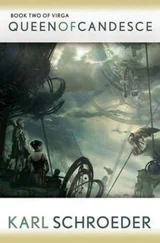4. Does Erik Schroder truly love his daughter or simply the idea of her?
Woah. I don’t know. I think that’s a question you could ask of any parent. Eric does think that Meadow is “like him” in certain ways. Parenthood gets just a little bit thornier, I think, when your kid is “like you.” Because at moments you might think he is you, which is distinctly unhelpful to him . There’s a moment late in the novel when Eric suddenly realizes that maybe he wanted to test Meadow, to see if she could stand bad things, like he had to stand bad things when he was a kid. It’s a disturbing and pivotal moment for Eric, when he realizes his narcissism is harming his own child.
5. What is it about the theme of identity — from our formative years through how we present ourselves as adults — that attracted you as a writer?
Someone once said to me, “All your books are about identity.” I think so. Who knows why? I had an early and unsettling awareness of the self as a construct. Sadly, I haven’t shaken that. I think we all do a lot of “deciding” who we are; we train ourselves to have certain qualities. But who knows, maybe even then, maybe, some other god-given self shines through, a self that’s better or worse than the one we’re projecting.
I guess the same thing gets played out in Schroder . Although Erik reinvents himself as Eric, the capable American, he can’t totally transform, not convincingly. His injured German boyhood self slips through. Even Laura begins to see this. Before she ever discovers he’s a fraud, she senses there is something fraudulent about him. So maybe that’s my answer. Maybe there is a “real self” that cannot be renamed or repackaged.
6. America is a land of opportunity and reinvention. Could Schroder have taken place elsewhere? What is it about the nature of America that allows a boy named Erik Schroder to grow into Eric Kennedy?
Yes, this is an American story. America has accepted waves of immigrants throughout its history. Sometimes their names were changed by lazy immigration officials and sometimes the immigrants changed their own names. My mother was one of those people. She came to this country from Latvia when she was eleven, was one of the displaced people of World War II. Her childhood was very hard. She didn’t want constant reminders of it, nor her ethnic background. Everyone made fun of her name. You see where this is going…
A lot of people come to the United States to reinvent themselves. It’s understandable. Of course, Eric does not legalize his name change, and because he’s not a citizen, he’s actually committing fraud by accepting Pell Grants, etc. But for me, the only truly immoral thing he does is lie to Laura. A marriage can’t be built upon a phony life history.
7. Because Schroder is written as a confession, Eric is a somewhat unreliable narrator. Are there parts of the story we are not privy to because of this?
Part of a novel’s craft is the hiding and revealing of all the information that the novel touches upon. The order of Eric’s confessions is significant. I might point to the very final chapter. He “hides” this information for a long time. In this scene, we see that Eric’s father attempted to explain his past to him, but Eric refused this attempt. He’s too scared. It’s too buried. Eric becomes more reliable as the book goes on, or at least more honest. Let’s say he’s an unreliable narrator in recovery.
8. In many ways, Laura’s perspective is absent from the novel. She is a character created out of “negative space.” Why did you decide to keep her voice out of the main narrative? Was it hard to exclude her from the central action of the novel?
I identify with Laura. Of course, it’s kind of like hamstringing yourself to leave a character you relate to out of a novel. But she’s there. I hope the reader might glean what she thinks of Eric, why she left him, etc., through the tidbits Eric reveals in the service of other things. But the novel isn’t really about why Laura loves or doesn’t love Eric. The novel is a love letter — Eric’s. It’s a long love letter that goes unanswered. I got sad myself writing the end of the letter/novel, when I realized that a “real” Laura probably wouldn’t even read it… Meadow will always remain connected to her dad, if only by blood, but Laura can wash her hands of the whole thing. Grown-ups can divorce each other. Kids can’t divorce their parents.
9. Given his actions as a husband, father, and a man, how sympathetic did you want Eric to seem to the reader?
After the first draft of the novel was done, I did a fair amount of listening to trusted readers and even legal advisees, listening for places where I might have gone a little nuts with my own fictional play. I have a dear friend who’s a lawyer, and we went through the draft scene by scene and she pointed out the things Eric does that would “mitigate” the kidnapping charges he’s faced with, and which things would “aggravate” those charges. At times, the law matched the moral barometers of my other readers. These were the same places where the readers said, “that’s unacceptable.” However, I must say that I didn’t want to write a book about which there would be consensus. I mean, I’m not trying to create a character about which easy judgments can be made, or upon which we can all agree. I don’t want to read such books, either. I’m not saying everything’s OK by me when it comes to human behavior. As a reader and a person in the world, I have my own limits for the acceptability or unacceptability of people’s actions. But a good book takes me much further into a moral question than I could go by myself.
10. What it challenging for you to write in a male voice?
I don’t think Eric is the “typical” male, but his voice came pretty easily to me. I hope he seems convincing as a man. The men in my life have mentioned that he does. I guess it’s just years of listening to them talk. My husband — who is a very reliable, law-abiding citizen, by the way — is really honest about men and male psychology. I think he let me into some of the secrets of the brotherhood.
11. How did you bring six-year-old Meadow to life, particularly since the reader only sees her through the eyes of her father?
Meadow initially felt like a dream to me, very abstract. But she grew as the book went along. I started to feel her stoicism. She took shape. Also, here and there, I stole lines of dialogue from my son. For example, he once defined “the soul” as the thing that “keeps the body up.” I could never have come up with that myself.
12. Why did you choose to use footnotes in your novel? Why not reveal these things in the body of the text?
Eric likes to digress, and occasionally show off his esoteric and maybe useless knowledge. For a while, I let him do this whenever he wanted. Then I realized that that’s exactly what footnotes are , places where the scholarly self can qualify and digress. The footnotes show Eric’s second, shadow consciousness as he’s writing. At first, that second consciousness tries to be all academic and cool. He uses the footnotes ironically to discuss theories of silence. He’s detached from his personal story, or at least he’s trying to seem like he is. But gradually, the footnotes turn personal. He stops talking about silence theory in the abstract and begins to talk about himself. The footnotes start to be anti-footnotes. He tries to keep them down, tries to minimize them, but occasionally they are the most honest things he says. The footnotes are just another facet to show Eric’s struggle, which is the struggle to tell the truth, the struggle to tell a true story.
Читать дальше












